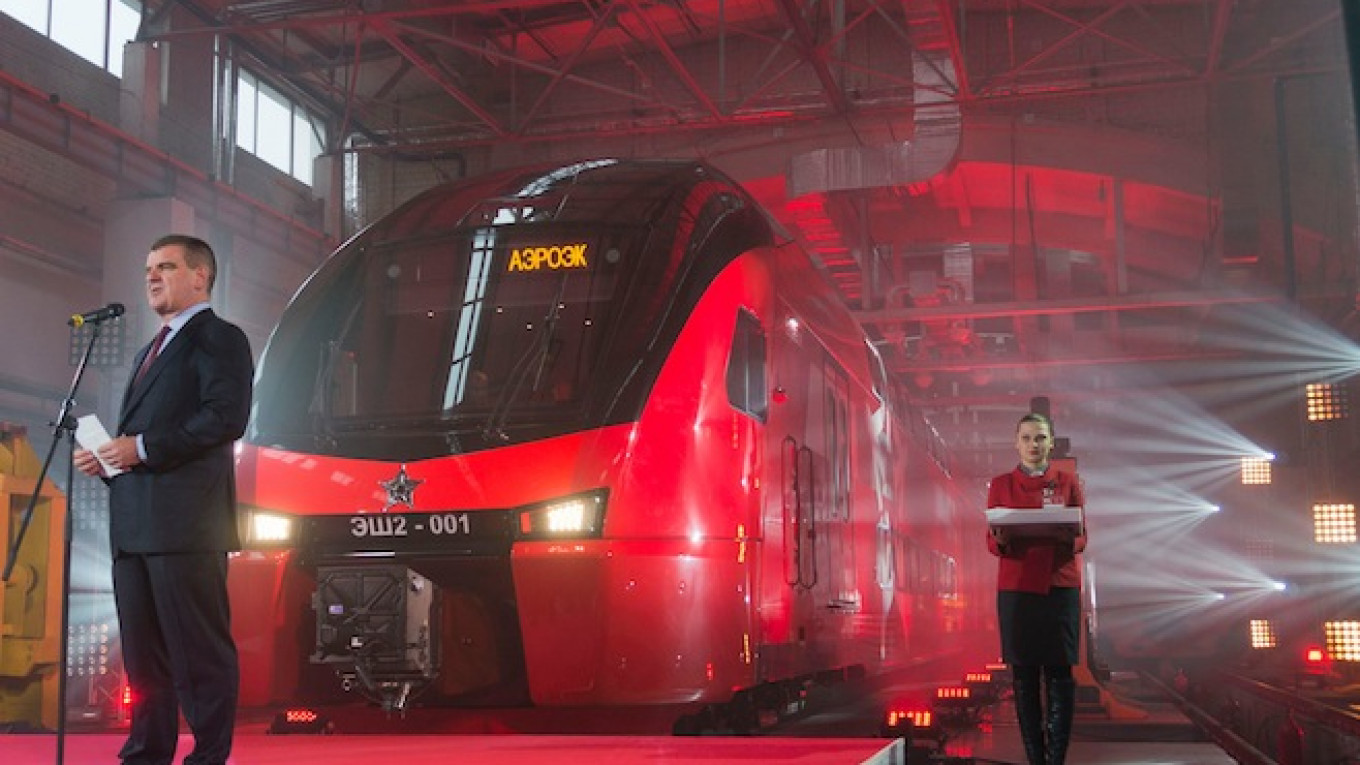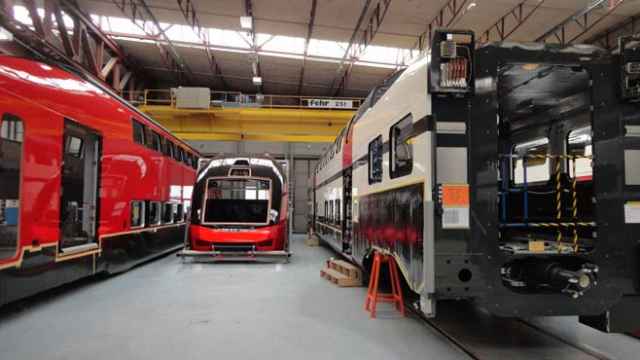Swiss locomotive manufacturer Stadler on Thursday delivered the first of 25 double-decker trains to Russia's Aeroexpress, the company that operates express rail links between Moscow's major airports and its downtown.
Resembling the elongated head of the extraterrestrial monster from the 1979 sci-fi horror film "Alien," the train emerged from hissing smoke as it entered the refurbished depot at Belorussky Station in northern Moscow, its future home and service center.
See the photo gallery: 2-Story Aeroexpress Train Launched in Moscow
But passengers will not see the train until summer 2015, as it first must go through testing and certification procedures. The last of the 25 trains will be delivered by the end of 2016. All of the old Aeroexpress trains will be replaced with new ones within three or four years, Moscow Mayor Sergei Sobyanin said.
"This is an important improvement for us," said Sobyanin, who came to Belorussky to welcome the new arrival. "With Aeroexpress carrying 18 million passengers to airports each year, I cannot imagine what would have happened had all these people gone by road."
The decision to launch Aeroexpress, which is 50 percent owned by state railway monopoly Russian Railways and started servicing passengers in 2008, was a timely solution for Moscow, a city notorious for its interminable traffic jams.
The number of passengers on the airport express rises by about 20 percent a year, and at peak hours it can be hard to find a seat. According to Aeroexpress, replacing the old trains with double-deckers will increase its carriage capacity by at least 40 percent.
Aeroexpress held the first stage of the tender to supply new trains in 2011. There were then seven participants, including such international train manufacturers as Germany's Siemens, France's Alstom, the Czech Republic's Skoda and Switzerland's Stadler. The latter finally won the 685 million euro ($850 million) contract, inked in May 2013, to supply 25 double-decker trains with an option for 13 more.
Unlike most other trains running above and below the ground in Russia, the new double-decker Aeroexpress trains are made from aluminum, which is lighter than the conventional steel and at the same time more resistant to impact. The trains' top speed is 160 kilometers per hour.
Compared with most trains that run in the Moscow region, some of which date back to the Soviet era and are quite ascetic, the new trains are significantly more advanced, with a spacious, modern interior and amenities including air conditioning and Internet access.
The first four trains are to be made in Switzerland, while the rest of the order will be completed at a local production facility opening in a week's time near Minsk, the capital of Belarus.
Contact the author at [email protected]
A Message from The Moscow Times:
Dear readers,
We are facing unprecedented challenges. Russia's Prosecutor General's Office has designated The Moscow Times as an "undesirable" organization, criminalizing our work and putting our staff at risk of prosecution. This follows our earlier unjust labeling as a "foreign agent."
These actions are direct attempts to silence independent journalism in Russia. The authorities claim our work "discredits the decisions of the Russian leadership." We see things differently: we strive to provide accurate, unbiased reporting on Russia.
We, the journalists of The Moscow Times, refuse to be silenced. But to continue our work, we need your help.
Your support, no matter how small, makes a world of difference. If you can, please support us monthly starting from just $2. It's quick to set up, and every contribution makes a significant impact.
By supporting The Moscow Times, you're defending open, independent journalism in the face of repression. Thank you for standing with us.
Remind me later.






